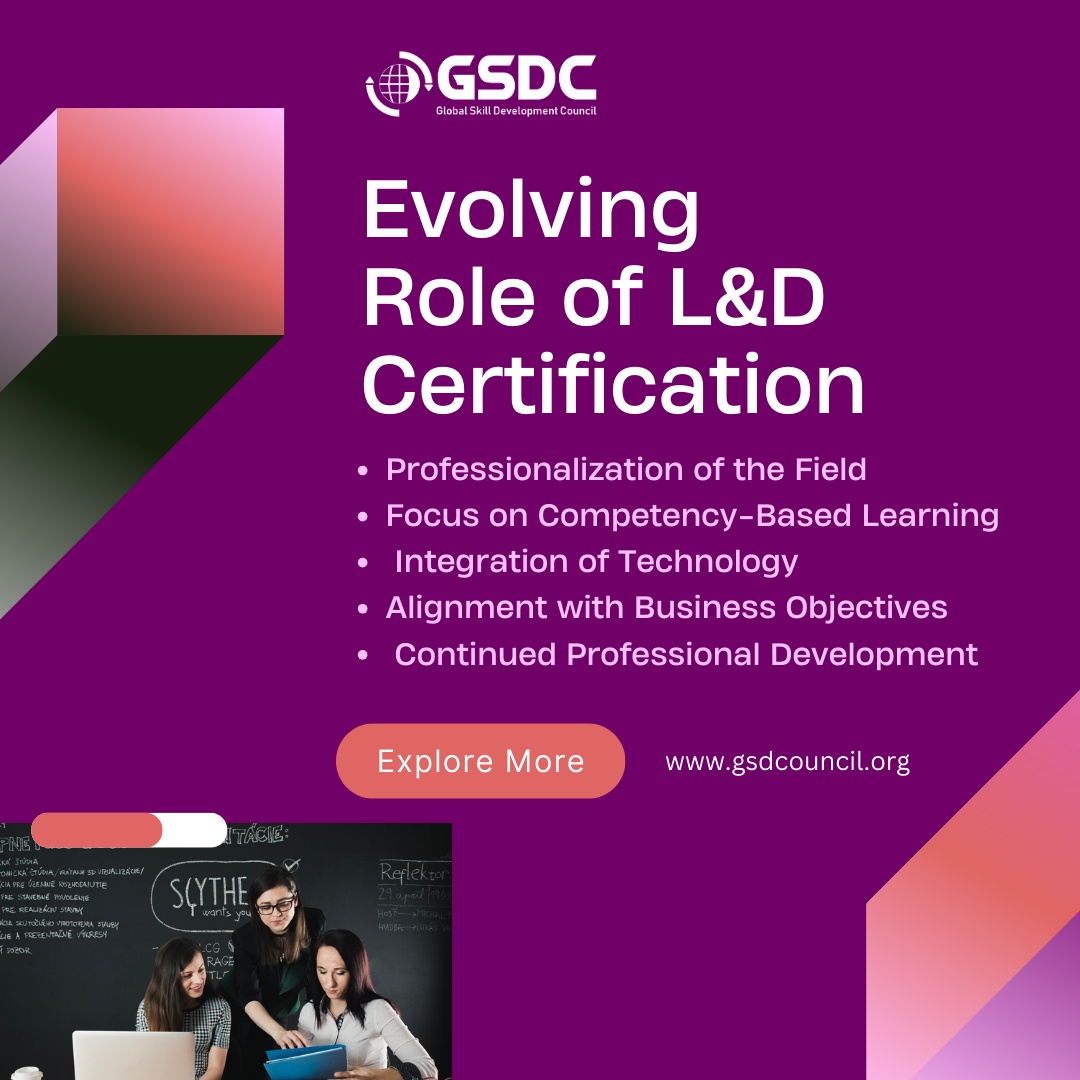L&D professionals can exhibit their knowledge and dedication to their field by earning the CLDP certification. Employers view certifications as indicators of a person's competency that can improve earning potential and career prospects.
The CLDP certification program includes a comprehensive curriculum that covers topics such as learning theory, instructional design, assessment and evaluation, and organizational development. The program also includes practical, hands-on experience that helps L&D professionals apply their knowledge and skills to real-world situations.
The Certified Learning and Development Professional (CLDP) program is an internationally recognized certification that is designed to enhance the competencies of L&D professionals.
It prepares professionals with the science of talent development in organizations, corporate training, performance management, and succession planning.
Let's delve into each aspect of the evolving role of Learning and Development (L&D) certification:
Professionalization of the Field:
As organizations increasingly recognize the strategic importance of talent development, there is a growing need for qualified professionals in the L&D field. L&D certification plays a crucial role in professionalizing the field by establishing standardized criteria for assessing competency and ensuring that professionals meet industry standards and best practices. Certification programs often cover a broad range of topics, including instructional design, training delivery, needs assessment, evaluation, and organizational development, providing a comprehensive framework for developing L&D expertise.
Focus on Competency-Based Learning:
Traditional L&D certification programs have shifted towards competency-based learning approaches, emphasizing the practical application of knowledge and skills in real-world scenarios. Competency-based certifications focus on assessing learners' ability to perform specific tasks and achieve predefined learning outcomes rather than simply measuring knowledge acquisition. By emphasizing competency-based learning, certification programs ensure that professionals are equipped with the practical skills and capabilities needed to succeed in their roles.
Integration of Technology:
In today's digital age, technology plays a central role in learning and development initiatives. As such, modern L&D certification programs have evolved to integrate technology into their curriculum. Certification programs now cover topics such as e-learning design, learning management systems (LMS), virtual classrooms, multimedia content development, and digital learning tools. By incorporating technology into certification programs, professionals gain the skills and knowledge needed to leverage digital tools and platforms to create engaging and effective learning experiences.
Alignment with Business Objectives:
L&D professionals are increasingly expected to align their initiatives with broader organizational goals and objectives. Modern certification programs emphasize the strategic role of L&D in driving business outcomes such as improving employee performance, increasing productivity, enhancing customer satisfaction, and fostering innovation. By aligning learning initiatives with business objectives, L&D professionals can demonstrate the value of their programs and contribute to the overall success of their organizations.
Continued Professional Development:
The role of L&D certification extends beyond initial credentialing to encompass continued professional development and lifelong learning. Certification programs often require professionals to maintain their credentials through ongoing education, training, and professional development activities. Additionally, certification bodies may offer advanced certifications, specialized tracks, workshops, conferences, and online resources to support professionals in their ongoing learning journey. By investing in continued professional development, L&D professionals stay updated on industry trends, best practices, and emerging technologies, ensuring that they remain relevant and effective in their roles.
The evolving role of L&D certification reflects the dynamic nature of the field and the changing needs of organizations and learners. Modern certification programs focus on professionalizing the field, emphasizing competency-based learning, integrating technology, aligning with business objectives, and promoting continued professional development. By obtaining L&D certification, professionals can demonstrate their expertise, credibility, and commitment to excellence in the field of Learning and Development.


No comments yet